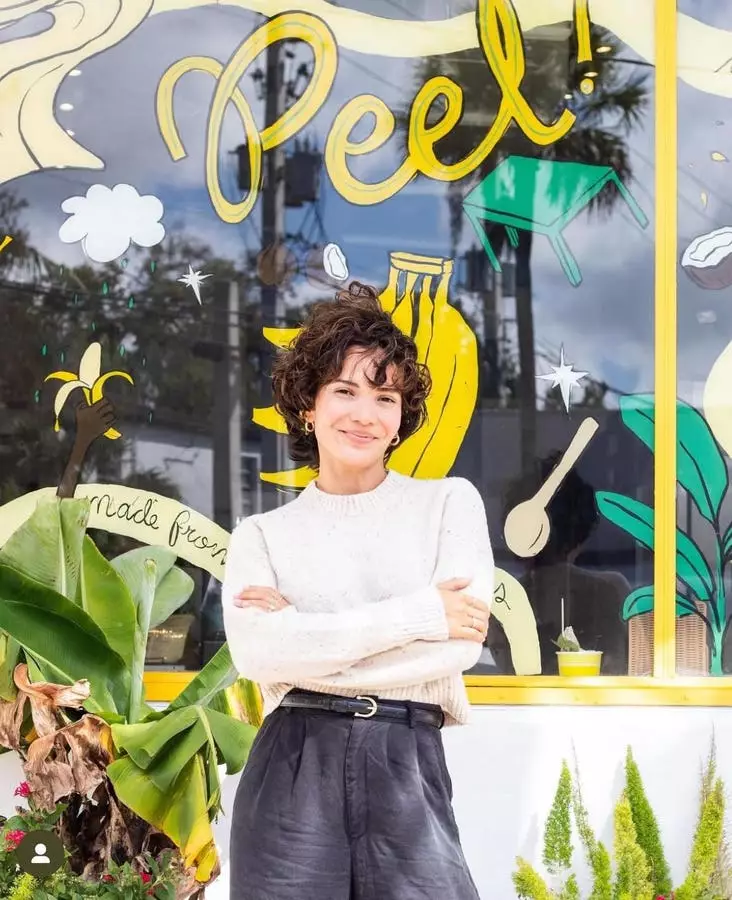In a world obsessed with flawlessness, Peel defies conventional standards by embracing the beauty of imperfection. The brand’s unwavering commitment to repurposing bruised and blemished bananas redefines how we view food aesthetics. Instead of viewing imperfect bananas as waste, Peel elevates them to the center stage of a vibrant, culturally rich movement. This approach not only challenges industry wastefulness but also symbolizes a broader shift toward eco-conscious consumerism. Peel’s innovative use of naturally ripened bananas—without added sugar or dairy—paradoxically crafts a product that’s both indulgent and responsible. The company’s philosophy confronts us with a powerful idea: that beauty and taste are not solely defined by perfection, but by purpose and resilience.
This mindset is transformative because it confronts the norms that dictate aesthetic perfection in produce. The everyday waste of nearly edible, yet aesthetically flawed fruit, is a glaring reality in food logistics. Peel’s strategy repurposes this surplus, making it an asset rather than discard. Such a move is more than environmental; it’s cultural resistance to the superficial standards that dominate modern consumer culture. By reframing “ugly” fruit as desirable, Peel champions a sustainable ethos that can influence larger industries to reconsider their wasteful practices. It’s a bold narrative: beauty can be imperfect, and that imperfection can be delicious.
A Fresh Perspective on Sustainability
Peel’s mission transcends simply reducing waste—it is about redefining our relationship with nature’s bounty through a playful yet meaningful lens. The company’s core principle makes a compelling statement: fostering sustainability does not have to be drudgery or guilt-driven; it can be rooted in creativity and joy. This lighthearted approach makes sustainability tangible and accessible, turning what might seem like a serious environmental imperative into a vibrant community experience.
Through sourcing “ugly” bananas, Peel employs an elegant solution for both food waste and health. Their soft serve, made with coconut milk and free from added sugars, exemplifies a future where plant-based, vegan treats are not only better for individual health but also kinder to the planet. The conscious choice of composting all organic waste, along with zero-plastic packaging, reveals a meticulous dedication to minimizing environmental impact. Yet Alvarez emphasizes that their efforts are humble and ongoing. The practical challenge of expanding sustainability practices while scaling operations is real, but Peel’s mindset remains honest and committed. Sustainability isn’t an end goal; it’s a continuous journey of small, meaningful actions.
Furthermore, Peel’s community-centric initiatives, such as the fruit rescue program involving local customers, serve as a testament to how collective effort amplifies impact. These initiatives transform consumers from passive buyers into active participants in sustainability, fostering a sense of shared ownership and responsibility. Such communal actions reinforce the idea that environmental change begins with simple, deliberate choices—like trading in ripe mangoes or selecting the imperfect fruit.
Revolutionizing Culture, One Soft Serve at a Time
At its core, Peel isn’t just a brand about delicious treats; it’s about creating a ripple effect in cultural perceptions. The playful, minimal aesthetic coupled with high-profile collaborations across fashion and lifestyle sectors demonstrates that sustainability and style can coexist seamlessly. Collaborations with Gucci, Crown Affair, and others aren’t just about marketing; they serve as powerful endorsements of Peel’s core values—creativity, authenticity, and joy.
More importantly, Alvarez’s approach underscores that sustainability should not be a restrictive obligation but an inspired movement. Peel’s cheeky logo, a banana-shaped smile, encapsulates this philosophy: happiness, fun, and responsibility can coexist in a single, joyful package. The brand’s ability to position itself as “the third place”—a social hub that fosters connection—further champions the idea that environmental consciousness is rooted in community, shared experiences, and positive emotions.
Through its collaborations, Peel elevates the everyday act of enjoying soft serve into a statement of cultural rebellion. For instance, creating flavors inspired by the seasons or specific brands not only showcases their creative ingenuity but also subtly promotes the idea that sustainability can be integrated into luxury, fun, and everyday life. Their professional partnerships reflect a curated authenticity—every association carefully chosen to reinforce the message that true style and sustainability are interconnected.
The Power of Purpose-Driven Entrepreneurship
What makes Peel’s story compelling is that it isn’t driven merely by profit but by a genuine desire to make a difference. Alvarez admits she didn’t initially envisage becoming a “soft serve girl,” yet her journey is a testament to how purpose can ignite passion in unexpected ways. Her background in tech and marketing didn’t prepare her for culinary ventures, but her drive to create something joyful and meaningful propelled her further.
Peel exemplifies a new model of entrepreneurship rooted in social and environmental responsibility. Each pint of soft serve symbolizes a rejection of waste, a celebration of imperfection, and an invitation to think differently about food. The company’s early moments at local markets, setting the foundation for growth, highlight how grassroots activism can evolve into a larger movement. Their reemergence post-COVID, through reinvented recipes and a broader footprint, illustrates resilience and adaptability—a crucial trait for any purpose-driven brand.
Alvarez views sustainability as a playful pursuit, emphasizing that serious change doesn’t have to feel burdensome. Her open acknowledgment that maintaining eco standards amidst expansion is challenging reveals honesty and pragmatism—a crucial aspect of authentic leadership. Her leadership proves that purpose and profit need not be mutually exclusive; with intentionality, sustainability can become an integral, fun part of scaling a business.
In essence, Peel’s story invites us to consider how small daily choices—like selecting “imperfect” fruit—can aggregate into larger cultural shifts. It demonstrates that entrepreneurship rooted in compassion for the planet and people can be playful, profitable, and profoundly influential. By transforming a humble banana into a symbol of beauty, waste reduction, and community, Peel is carving a bold new pathway—one soft serve at a time.


Leave a Reply